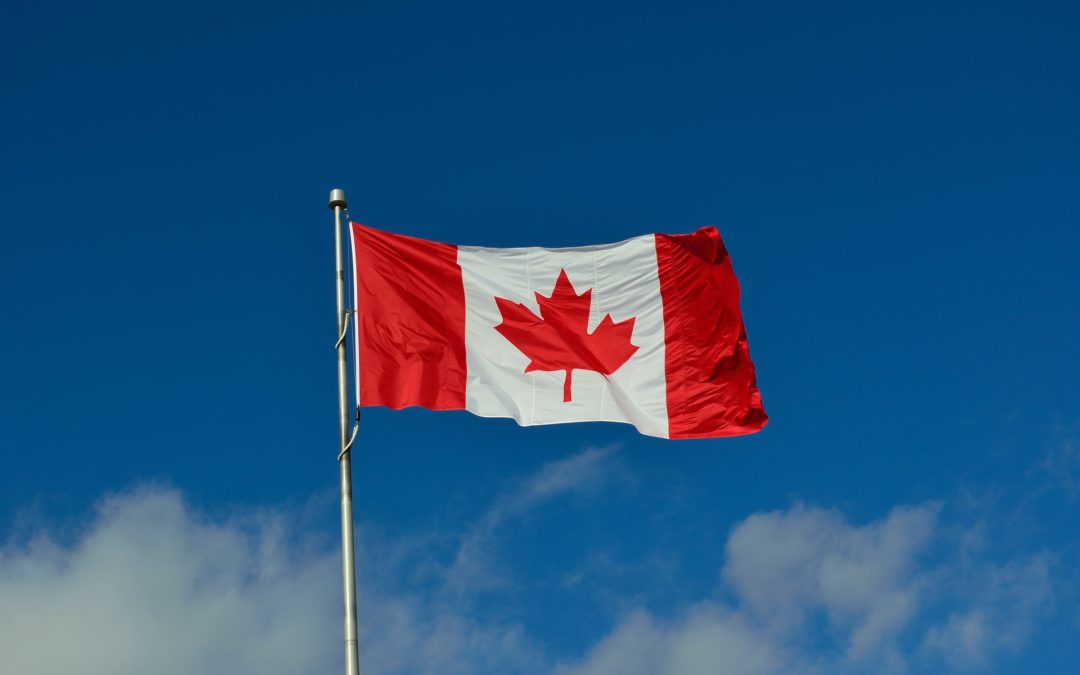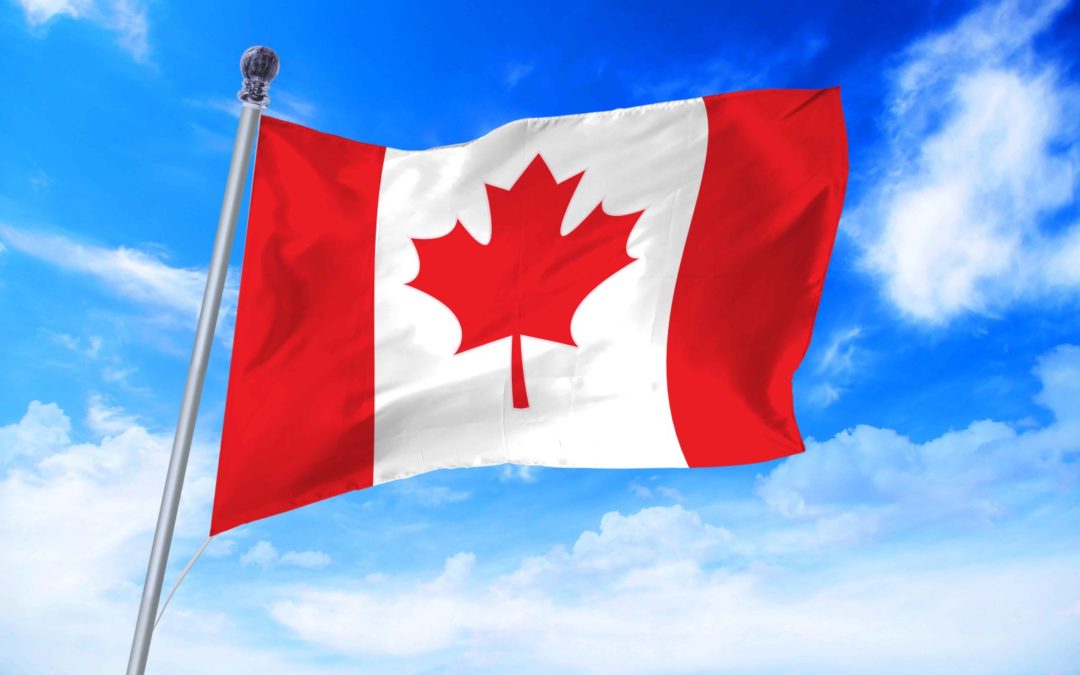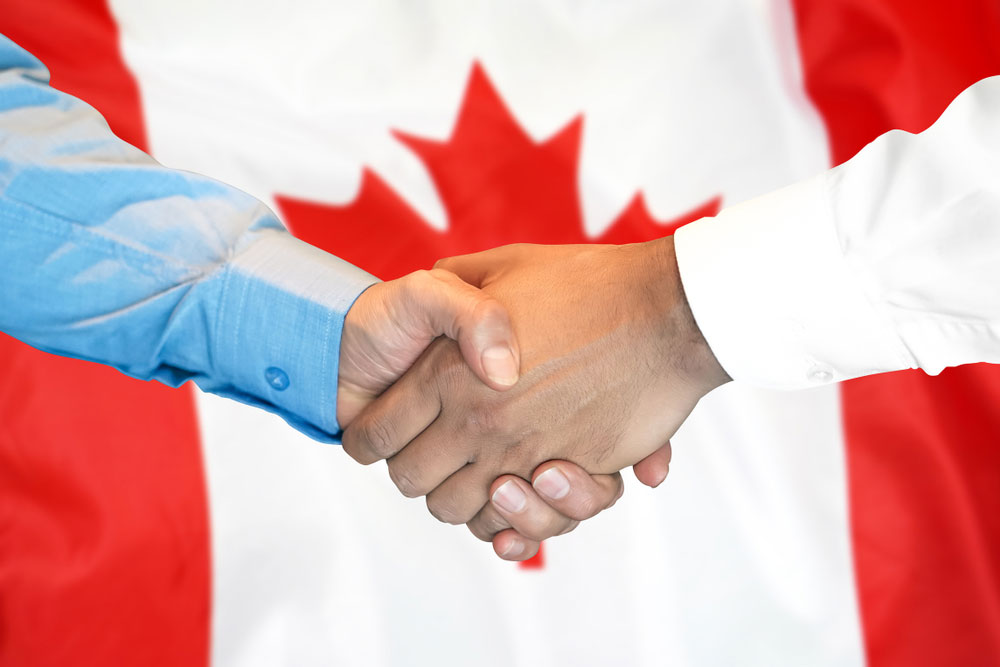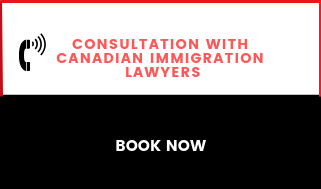
by Immilaw Team | Mar 11, 2022 | Canada Immigration
Spouses or partners of international students who are married or in a common-law relationship often accompany them when they move to Canada. While you focus on your studies, your spouse or partner could look for work opportunities at different establishments. The best way to go about this is to ensure that they receive an open work permit.
While closed work permits are employer-specific, open work permits are way more flexible. If you have an open work permit, you can work with any eligible employer in the country and take up any position. The open work permit is issued by the Canadian government such that it is valid for the same duration as your study permit.
Your partner will need to follow specific procedures to obtain a work permit. For instance, they might be required to provide an upfront medical examination. Again, our experienced immigration lawyers can help you out here. We specialize in providing you with comprehensive services that enable the completion of such formalities in the smoothest way possible.
Work Permit
Eligibility Criteria
Open work permits are issued to spouses or partners enrolled as full-time students in recognized Canadian institutions. The students need to have a valid study permit. The person applying should be either married to the student or fall into the definition of a common-law partner.
A common-law partner is an adult person who isn’t married to you but has been living with you for a minimum of 12 months. There should be no long separation gaps (other than for valid reasons such as work or familial obligations).
One of the critical differences between regular work permits and an open work permit is that you don’t need an active job offer to apply. Instead, if the student and the partner satisfy the relationship criteria established by the government, the partner is eligible for an open work permit.
Generally, the work permit’s validity coincides with that of the study permit.
When is the Right Time to Apply?
It is entirely at your discretion when you plan to apply for the open work permit. Some people choose to do so before their partner shifts to Canada. You can also apply for a work permit in Canada with your partner. It is acceptable to apply for the study permit for the student and the work permit for the partner at the same time.
If you and your partner satisfy the necessary criteria of the visa requirements, a study permit and work permit will be issued. The spouse of an international student does not need to have a job offer in hand to apply for a work permit. However, once your partner has decided to work in Canada while studying, they must complete the work permit application.
This is available on the official website of the Canadian consulate. You can apply for the study permit and the open work permit together by paying the required fees. Some partners opt to arrive in Canada as visitors and later secure a work permit. Many applicants can apply for a work permit at the airport or the Canadian border. This holds if neither of you is issued a temporary resident visa (TRV).
The Process: How to Apply Online
You can choose to apply for the work permit yourself by creating a GC Key. The application can be made entirely online, and you will be required to gather the necessary documentation. Once you have filled out all the forms and paid the application fee after submitting all the documentation, your application will be through.
The application is quite a tedious process as it requires you to access the portal and complete the registration process from scratch. You will have to make sure that you enter the right answers and there should be no discrepancy. You can choose to seek assistance with your application. An authorized representative will be able to apply on your behalf.
An important thing to keep in mind is that if you hire someone to help you with your visa process, they should be an authorized representative with the IRCC.
Work Permit Restrictions
Sometimes, you may face a few restrictions on the work permit that the IRCC issued. A prominent example of this is the restrictions posed by workplaces that require immigration medical examination mandatorily. Suppose you have not undergone an immigration medical examination before arriving in Canada. In that case, you might face restrictions when you try to apply for jobs in primary or secondary school level educational facilities, child care establishments, or healthcare settings. You will have to comply with medical examination requirements should you wish to work with such establishments.
Do you require assistance or guidance with your open work permit application?
Immilaw Immigration offers you various immigration services, including assistance with your application. It is a full-service immigration law firm based in Canada. We have offices in Toronto, Ottawa, Halifax, and Winnipeg. We have a team of dedicated lawyers who can help you with your application requirements. We guarantee improved success rates on your visa application due to the engagement of a Canadian lawyer who will help you file your application.
Our specialized services are rendered by lawyers who, unlike other consultants, are familiar with the intricate details of the process. Years of immigration data testify that the success rate of visa applicants is much higher for those who avail assistance from an immigration lawyer rather than an immigration consultant. Further studies indicate that the rejection rate on your visa is almost 19.3% when you prepare and submit the visa application by yourself. Hiring an immigration consultant only meagerly reduces the rejection rate to 18%, which is still pretty high.
When you hire an immigration lawyer to help you with the process, the lawyer can help support your application with a personalized lawyer-submission letter addressed to the Visa Officer, which smoothens the process considerably. To prepare a successful visa application, you need to have up-to-date knowledge, careful planning, meticulous documentation, and proper filing skills- all of which are areas of expertise for our seasoned immigration lawyers at Immilaw Immigration.
We will work together with you to determine your eligibility. Take our FREE online assessment.
FREE Online Assessment
Reach out to us or send in an inquiry right away. We assure you that we will get back to you at the earliest.
Contact Us

by Immilaw Team | Mar 9, 2022 | Canada Immigration
You can sponsor your family to live with you in Canada. People often wish their families to be with them when they move to Canada.
The eligibility requirements that you must satisfy for your family to be able to move to Canada with you include:
- You must be at least 18 years of age (an adult).
- You must be a citizen of Canada or a permanent resident of the country.
- You must be residing in Canada at the time of application (if you are a permanent resident).
- Depending on whom in your family you wish you sponsor, you will be required to produce substantial evidence of your income and financial stability. This is to let the government know that you will be supporting your sponsored family member without any assistance from the government.
- Other than in the case of any disability, you must not be excepting any social assistance.
If you wish to become a sponsor for your family member(s), you need to ‘promise’ that they are your financial responsibility. Officially, this is called an ‘undertaking”. The undertaking includes the following responsibilities:
- Rendering financial support and catering to the basic needs of your sponsored family member(s) from the time that they become permanent residents of Canada.
- If any social assistance was provided to the family member(s) during the undertaking, you are responsible for repaying the same.
Family Class Immigration
Sponsoring Your Spouse, Partner (Conjugal or Common Law)
You can sponsor your partner if they are married to you or live in a common-law relationship. Both of you have to be above 18, irrespective of gender.
To be eligible to sponsor your common-law partner, there must be substantial proof that both of you have been living together for at least a year. During this period, there should not be any significant separation gaps other than for critical reasons such as work or health.
Canada welcomes those in a conjugal relationship. Suppose you and your partner are not permitted by the laws of your country to live together due to reasons beyond your control (sexual orientation, persecution, or your marital status). In that case, you can still apply to sponsor them.
Immilaw Immigration has a team of dedicated lawyers who can evaluate and assess your case and provide you with specific assistance on how to go about this.
You are required to gather essential documentation as part of the application procedure. These include:
- You need documentation that proves the ingenuity of your relationship (e.g., marriage certificate).
- Identify Proofs of Spouse/Partner and Dependent Children, if any.
Currently, Canadian citizens living outside the country can also sponsor wives to Canada. But this is under the agreement that the sponsor will return to Canada with the family member once the application has been successfully processed.
A strong and convincing application is the key to boosting your chances of securing permanent residency for your family. Applications that are comprehensive and better organized and processed faster as well. Reach out to our expert immigration lawyers today at Immilaw Immigration to help you get started with the process.
Sponsoring Your Children
If your child is dependent on you, you can sponsor them to come live with you in Canada. To be considered a dependent family member, your child needs to fulfill the following criteria:
- They must be under the age of 22.
- They must not be married or in a common-law partnership.
If your child is above the age of 22, you can still apply to sponsor them, provided you can prove that:
- They have existing physical or mental conditions that prevent them from supporting themselves financially.
- You have been providing them with financial support since before they turned 22.
You can also sponsor children of your dependent children. You need to make sure that your child continues to satisfy all the criteria, except for age, until the application is processed smoothly.
Sponsoring Your Parents/Grandparents
Canada announces a parents and grandparents sponsorship program every year. You may sponsor your parents and grandparents if you meet the eligibility requirements of the specific year. It would help if you were related to them by blood or official adoption. If your parents are separated or divorced from each other, you can sponsor them individually or with their current spouses or common-law partners. This applies to both your parents and your grandparents.
For sponsoring your parents or grandparents, you must undertake financial responsibility for them. You must prove that you have met the minimum income requirements for at least the past three years. The requirements can be completed individually or by considering the income of your spouse or partner.
Sponsoring Your Relatives
Citizens and permanent residents of Canada can sponsor certain relatives to come live with them. For example, if you have an orphaned brother or sister, grandchild of a nephew or niece who needs your support, you can sponsor them. You must take into consideration the following criteria:
- The relative you plan to sponsor must be related to you by blood or legal adoption.
- They must be younger than 18 years.
- They must not be married or in a common-law/conjugal partnership with anyone.
- Both their parents have passed away.
Some scenarios where you are not allowed to sponsor your relative include situations where:
- The location of the parents cannot be traced.
- Their parents have abandoned them.
- One of the parents is alive, but they are not looking after them.
- Their parents are detained or in jail.
Require Help in Sponsoring Your Family?
Immilaw Immigration brings you top-notch immigration services put together by expert lawyers who have worked with thousands of successful clients to increase the success rates of their visa applications. Our law firms offer comprehensive services. We have offices in Toronto, Ottawa, Halifax, and Winnipeg, where you can meet with our expert immigration lawyers and discuss your application needs.
A Canadian lawyer will guide you through the process to maximize your success rate. Immigration lawyers are familiar with the intricacies of the process and boost your chances way more significantly when compared to regular immigration consultants. Factually, you are only increasing your success rate by 1% if you choose to avail the services of immigration consultants instead of doing it yourself. However, this is not the case with immigration lawyers.
Fill Out Our Immigration Assessment Form
Your immigration lawyer will submit a personalized lawyer-submission letter addressed to the Visa Officer to support your application. Successful visa applications take time, meticulous documentation, and up-to-date knowledge. You also require top-notch filing skills. Immigration lawyers at Immilaw Immigration handle all of these with ease.
Reach out to us today, or pop by to one of our offices and let us get you started!
Contact Us

by Immilaw Team | Mar 4, 2022 | Canada Immigration
New Brunswick is popular among Canada’s northern maritime provinces for multiple reasons. It is the only province in Canada that is officially considered to be bilingual. 30% of the population in New Brunswick identify their first language as French.
The NBPNP initiative by the province targets skilled and experienced workers who are offered the opportunity of immigration to New Brunswick. A provincial nomination certificate is issued to those who are eligible. Immigrants seeking permanent residence in Canada could benefit from this certification.
Overview of New Brunswick
The New Brunswick province is close to the State of Maine located in the US. It is located south of Quebec (right below the Gaspé Peninsula). Unlike the larger provinces, the cost of living here is considerably lower. There is no lack of optimal job opportunities for the qualified. Immigrants can choose the lifestyle that best suits them as New Brunswick has it all. It has dainty towns with beautiful rivers and landscapes. You also have big cities- Saint John and Fredericton, to name a couple. This province, with its numerous recreational opportunities, is anything but boring.
If you are interested in moving to New Brunswick, the New Brunswick Provincial Nominee Program (NBPNP) might be right for you. Here are the five existing immigration categories that the NBPNP currently offers:
Express Entry Stream
NBPNP gathers data from the federal Express Entry Immigration Selection System to access information about potential immigrants. The needs of the province in terms of demography and occupational demands are matched against the profiles.
Qualification Criteria
- Your express entry profile must be active.
- You currently reside in the province.
- You have a Job Seeker Validation Code, or you can prove that you are eligible for a post-graduate work permit (by being enrolled in a post-secondary institution approved by the Federal Government).
- Your English/French language test scores are satisfactory and are equal to level 07 of the Canadian Language Benchmark.
Skilled Workers Stream
This is apt for those who hold a job offer (permanent, full-time) from a New Brunswick employer.
Qualification Criteria
- You should have proof of intent to reside in the province.
- You should possess a permanent and full-time job offer from an employer (who is eligible to offer such jobs according to government regulations).
- You should have a letter of support from your future employer.
- You should be between 19 and 55 years of age at the time of application.
- You must meet the minimum educational criteria: Canadian High School Diploma or a foreign credential of the same value.
- Your English/French language test scores are satisfactory and are equal to level 04 of the Canadian Language Benchmark.
Business Immigration Stream
If you plan on starting and funding a business in New Brunswick, the business immigration stream is apt for you.
Qualification Criteria
- Before you submit your Expression of Interest, you must prove that you have a viable connection to the province.
- Your net worth should be a minimum of C$600000. At least half of this should be available readily for investment.
- Minimum academic qualifications: Academic Degree following 3 years of full-time studies or Vocational Degree following 2 years of full-time study.
- Your age must not be below 22 or above 55 during the time of application.
- Your English/French language test scores are satisfactory and are equal to level 05 of the Canadian Language Benchmark.
Strategic Initiative Stream
If you are confident about your skills in the French language and can meet the required criteria, this is a great option for you.
Qualification Criteria
- You must be willing to live and work in the province of New Brunswick.
- You must meet the minimum educational criteria: Canadian High School Diploma or a foreign credential of the same value.
- You should be able to establish a qualifying connection to the province.
- You must be financially capable of meeting the minimum required funds for settlement.
- Your age must not be below 19 or above 55 during the time of application.
- Your French scores must be equal to ‘5’ in NCLC (Niveaux de compétence linguistique canadiens).
Atlantic Immigration Program
Atlantic Canada needs foreign workers and is on the constant lookout for them. To deal with the shortages in the labor market, the Canadian Government has a few provinces working alongside to recruit suitable personnel. You can apply to the Atlantic Immigration Program whether you temporarily reside in Canada or live abroad. A valid job offer from an eligible employer is necessary.
Do you require assistance or guidance with the NBPNP?
ImmiLaw Immigration Law Firm offers a variety of immigration legal services, including assistance with your NBPNP application. We will work together with you to determine your eligibility. Take our FREE online assessment here. We are determined to improve your chances of securing different types of visas and have an exceptional track record of doing so.
Click here to send in an inquiry right away. We assure you that we will get back to you at the earliest.

by Immilaw Team | Feb 28, 2022 | Canada Immigration
The list below indicates the Canada visa (TRV visitor visas, Study Permits, and Work Permits) refusal rates for all individuals from various visa-required countries. The visa refusal rates provided by IRCC show the visa success for each visa office. The low approval rate registered by some countries is due to individuals submitting applications themselves without seeking help from an immigration lawyer. Besides, individuals often apply several times (as many as four times) before seeking a lawyer’s help. Individuals reapplying after the first refusal usually are slapped with another rejection. Therefore, it is wise to seek professional help when you reapply.
ImmiLaw Immigration has helped many individuals who received a visa refusal or multiple visa refusals. However, it is always better to engage an immigration lawyer to file your visa application.
Check out the official IRCC Approval Rates
Fill Out Our Immigration Assessment Form

by Immilaw Team | Jan 31, 2022 | Canada Immigration
The temporary foreign worker program (TFWP) allows Canadian residents to bring in foreign workers through special immigration programs to work as caregivers. The Home Child Care Provider Pilot Program & Home Support Worker Pilot Program are the two options.
Run under the aegis of IRCC and ESDC; this caregiver program requires the employer and the caregiver to meet several criteria to become eligible.
Home Care Giver/ Home Support Worker Programs
These pilot programs allow qualified caregivers and families to come to Canada and later apply for PR. Any caregiver who has got a suitable job offer in Canada can gain the required work experience after arriving in Canada on a work permit. Authorities issue a PR after two years in such cases.
A caregiver with experience working in Canada can also apply for PR through these pilot programs. The application process depends on the caregiver’s qualifying work experience and current situation.
The two pilot programs through which caregivers can enter Canada:
Home Child Care Provider Pilot (NOC 4411)
The program accepts 2750 applications every year. However, the applications for 2022 are closed as the cap has been reached. So if you like to apply under this program, you need to wait until 2023 January 1, until the program reopens. (The caregiver’s experience as a foster parent does not count).
Home Support Worker Pilot (NOC 4412)
A caregiver can still apply under the Home Support Worker Pilot program. This caregiver program also accepts up to 2750 applications in a year. However, this program is still open for accepting 2022 applications. (The caregiver’s experience as a housekeeper does not count)
If you have a valid job offer under NOC4411 or 4412, you can come to Canada on work permits. Then, after gaining two years’ work experience in Canada, you can confirm your PR.
If you are already in Canada with sufficient work experience under the eligible NOC, you can apply for PR.
Caregivers can bring their families and apply for PR if they meet specific criteria. The caregiver applicant should have work experience for the respective pilot programs in these categories.
Work Experience Qualification categories – Caregiver Program
Applicants who have never worked as a full-time caregiver in Canada need to come to on a work permit and complete two years of work experience
Applicants without 24 months of experience (Category A)
Applicants who are otherwise eligible but lack the 24 months of qualifying Canadian work experience when their application for PR will receive an occupation-restricted open work permit (OROWP). Within 36 months of issuing the OROWP, the applicant must demonstrate at least 24 months of authorized full-time work experience. In addition, any qualifying work experience claimed must have been obtained within 36 months of the issuance of the OROWP.
Note: Some applicants may already have less than 24 months of qualifying Canadian work experience when receiving an OROWP. They can add this experience toward the 24-month requirement if they demonstrate that the 24 months’ experience was acquired within the preceding 36 months of submitting their proof of work experience.
Applicants with 24 months of experience (Category B)
Applicants with at least 24 months of qualifying Canadian work experience at the time of application will have to furnish proof of qualifying work experience in their PR application. In addition, the applicant must demonstrate that they have obtained a total of at least 24 months of eligible full-time work experience in Canada within the preceding 36 months of the time of application.
PR Application
The caregiver may apply for PR through the Home Child Care Provider or Home Support Worker pilot programs if they meet the eligibility requirements and have a job offer to work in the mentioned occupations.
Advantages of the Home Child Care Provider and Home Support Worker pilot programs
- Openwork permits give caregivers the advantage of working for more than one employer
- Employers don’t need to go through an LMIA
- The language requirements are straightforward and relaxed
- Caregivers can bring their families to Canada
- The spouse can also apply for an open work permit
- Caregivers can become PRs
- Work experience as a caregiver adds up for your PR application
Other Criteria
To immigrate to Canada as a caregiver, the applicant must have, assessed their educational credentials and language skills. In addition, they must prove that they can perform the job offered to them.
The caregiver applicant can get help from an immigration lawyer in Canada to file their application correctly to the Visa Office and fast-track it. The lawyers will also know about the latest COVID-19 restrictions for visa application and travel to Canada.
Fill Out Our Immigration Assessment Form
How Immilaw Immigration can help
Suppose you are in India and are looking to take up a job via the caregiver program in Canada. In that case, our Canadian immigration lawyers can help to assess your eligibility. They can also help you submit the applications and secure a work permit. In addition, they can further assist you in applying for PR in Canada and complete all the necessary legal formalities.
At ImmiLaw Immigration, our immigration lawyers can help you come to Canada as a caregiver and bring your spouse along. We can fast-track your caregiver application and make submissions on your behalf. You may contact our office at 613-276-1454. In addition, you can send your query to us at info@immilawimmigration.com. We will contact you soon and schedule a consultation with one of our best immigration lawyers.
Contact Us






